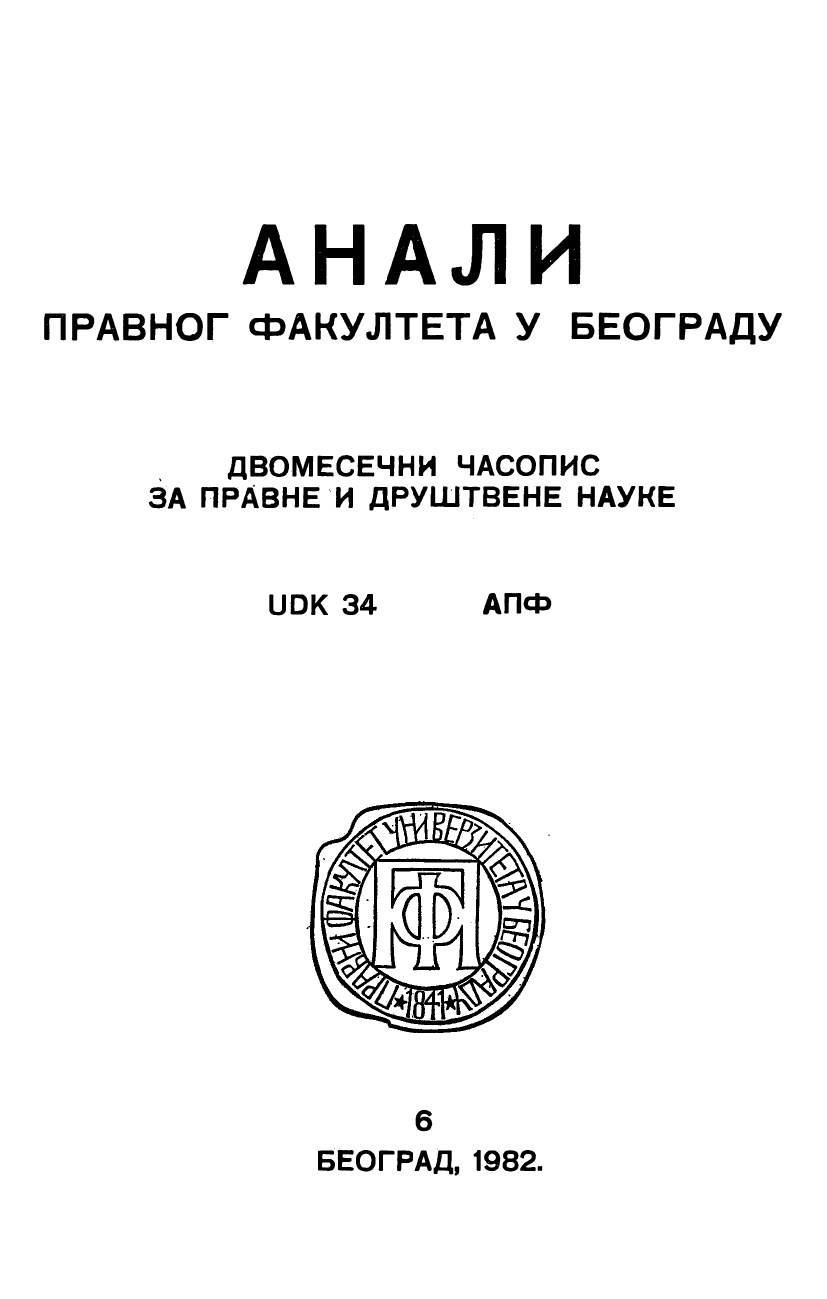НЕДОЗВОЉЕНЕ ОДРЕДБЕ У УГОВОРИМА У ФРАНЦУСКОМ ПРАВУ
PROHIBITED CONTRACTUAL CLAUSES IN FRENCH LAW
Author(s): Alfred RiegContributor(s): Miodrag Orlić (Translator)
Subject(s): Law, Constitution, Jurisprudence
Published by: Правни факултет Универзитета у Београду
Summary/Abstract: The question of prohibited contractual clauses has become current in the last few years and it is undisputably closely related to the large movement intended to protect the consumer. It is beyond doubt that such clauses have been prohibited by certain laws ever since the beginning of this century, but it is also certain that this campaign had a new upsurge with the „rights of the protection of the consumer”. France has recently worked out a new system of protection against prohibited contractual clauses, with the passing of the Law of loth January 1978 (called the Skrivener Law). That does not mean that the study of accepted solutions should be confined to the listing of its clauses. The Franch system of protection primarily embodies rules established through practice in the courts, and then legal provisions. Intervention of the French courts touched upon only two questions: the problem of embodying certain clauses in contracts and the problem of their interpretation, while the third, the question of judicial control of their effectiveness has been completely disregarded. The Skrivener Law of 1978 was passed in order to fill this gap. The legislator was satisfied to establish the criteria for the determination of which clauses are prohibited, leaving to the government the option of either prohibiting, limiting or regulating them. The main role is therefore played by the government which should take the iniciative for the analysis of such clauses. In that task it is especially aided by the Commission for Prohibited Clauses consisting of fifteen members.
Journal: Анали Правног факултета у Београду
- Issue Year: 30/1982
- Issue No: 6
- Page Range: 1183-1194
- Page Count: 12
- Language: Serbian

